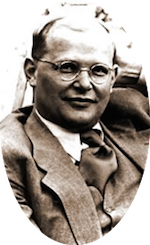The Democrats’ White-People Problem
by Joan Williams (The Atlantic). «As early as the 1680s, powerful white people were serving up racism to assuage the injuries of class, elevating the status of white indentured servants over that of enslaved black people. Some two centuries later, W. E. B. Du Bois observed that poor white people were compensated partly by a “public and psychological wage”—the “wages of whiteness,” as the historian David Roediger memorably put it. These wages pit people of different races against one another, averting a coalition based on shared economic interests.»
Do Americans Know How Much Trouble They’re In?
by Umair Haque (Eudaimonia & Co.). «America is at a crossroads. A point of no return. A democratic society cannot really survive the three assaults above, and go on being one. They may seem like just daily events in the ongoing sad saga of a troubled nation — but they are not just that. They contain great significance to history, which I feel American intellectuals are doing a poor job of interpreting and presenting to the American people.»
When White People Are Uncomfortable, Black People Are Silenced
by Rachel Elizabeth Cargle (Harper's Bazaar). «Silencing happens when, for white people, hearing the truth is too much; when the truth hangs so painfully heavy on their shoulders that they’d rather get rid of the weight, than actually face the issue head on.»
The Southern Poverty Law Center Is Everything That’s Wrong With Liberalism
by Nathan J. Robinson (Current Affairs) «The Southern Poverty Law Center perfectly shows social change done wrong. It was a top-down organization controlled by an incompetent and venal leadership. It was hypocritical in the extreme, preaching anti-racism while fostering a racist internal culture and being led by men whose own commitment to equality was questionable. It didn’t care about listening to and incorporating the viewpoints of the people it was supposed to serve. It was obscenely rich in a time of terrible poverty, and squandered much its considerable wealth. Finally, it picked the wrong political targets, and focused on symbolic over substantive change. Each of these practices goes beyond the SPLC, and is endemic to a certain kind of “elite liberalism” that desires “progress” without sacrifice. It is the kind of liberalism recognized by Phil Ochs in 1966, and its chief characteristics are a deep hypocrisy and a lack of willingness to seriously challenge the status quo.»
Subscribe to:
Post Comments (Atom)


















No comments:
Post a Comment